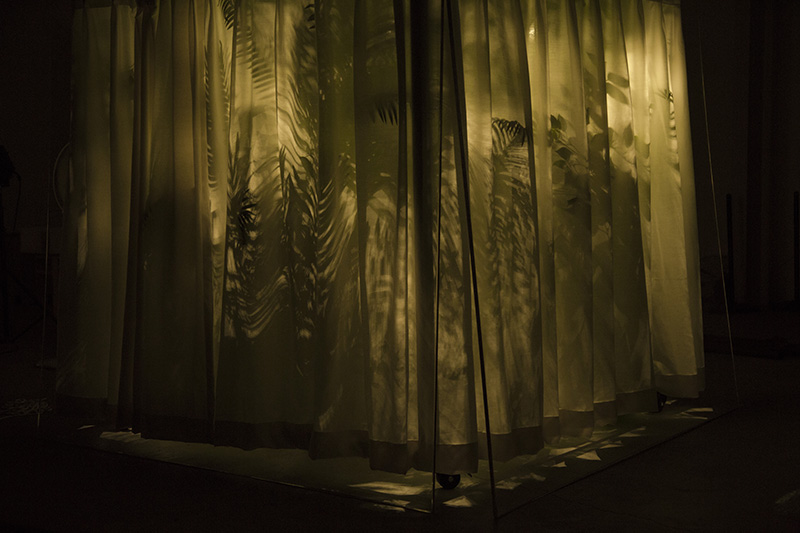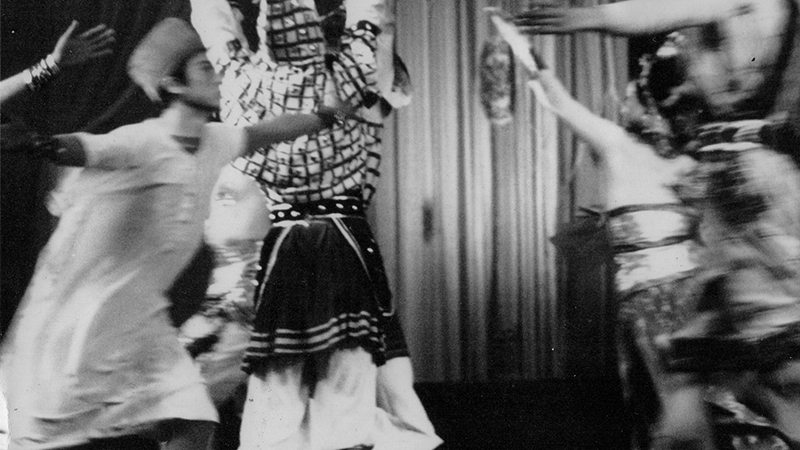ART CITIES:Beijing-Cold Nights
 Set in 1940s Chongqing, Ba Jin’s novel “Cold Nights” recounts the collapse of a family of intellectuals owing to domestic conflict and grapples with their emotional entanglements against a background of national crisis. Each of the four protagonists represents a distinct layer of the turbulent Chinese society at the time, and all are deeply enmeshed in and affected by a complex web of kinship, romantic, and economic relationships.
Set in 1940s Chongqing, Ba Jin’s novel “Cold Nights” recounts the collapse of a family of intellectuals owing to domestic conflict and grapples with their emotional entanglements against a background of national crisis. Each of the four protagonists represents a distinct layer of the turbulent Chinese society at the time, and all are deeply enmeshed in and affected by a complex web of kinship, romantic, and economic relationships.
By Efi Michalarou
Photo: UCCA Archive
The exhibition “Cold Nights” at Ullens Center for Contemporary Art (UCCA), takes Ba Jin’s eponymous novel, the curators invited four artists, after reading the story, to play the roles of its four protagonists through their own artistic creation. Throughout the period of creation, Chen Zhou, Liu Shiyuan, Nabuqi, and Li Ran, with and responded to each other from their respective roles, forming a sort of creative collective built on the foundation of the novel. The final presentation of the exhibition is the artists’ response to their fictional personae as well as their current lived reality. The overlapping and mixing of these responses, in turn, structures a new space, a new text. This intricate mesh that Ba Jin has woven in order to launch his trenchant critique of Chinese society at his time of writing sets the narrative foundation of the exhibition. It also serves as the conceptual bedrock for the curators’ vision of an exhibition where each instance of artistic creation becomes interdependent and simultaneously an act of performance. Throughout the period of creation, the artists interacted with and responded to each other from their respective roles, forming a sort of creative collective built on the foundation of the novel. This intimacy is evident in the visual dialogue between Chen Zhou “Blue Hole” (2017), Liu Shiyuan’s “The Best is Yet to Come” (2017) and “Night of Patmos” (2017) by Li Ran, through shared motifs and narrative cues. Chen Zhou mainly works in video installation and painting. His earlier works fall into a certain seclusion and despair, referring to the authority of the system, to different kinds of relationships, and to the anxieties of our times. They are often concerned with abusive external forces interacting aggressively with the individual, and try to expand the understanding of the strategies hidden behind the media and the organs of power. The scope of Liu Shiyuan’s art practice comprises photography, video, stage performance, and spatial installations, among others. Through her art practice she exposes a visual language that is unaffected by regional boundaries. Departing from a focus on objects themselves, Nabuqi’s work extends to the relationship between objects and the human body, as well as the variations of individual perceptions within different spaces and environments. Li Ran is a performance and video artist whose work straddles the line between fact and fiction in playful explorations of issues pertaining to institutionality and colonialism, among others.
Info: Curators: Boliang Shen & Zhanglun Dai, Ullens Center for Contemporary Art (UCCA), 798 Art District, 4 Jiuxianqiao Lu Road, Chaoyang District, Beijing, Duration: 15/11-17/12/17, Days & Hours: Tue-Sun 10:00-18:30, http://ucca.org.cn
1.jpg)


